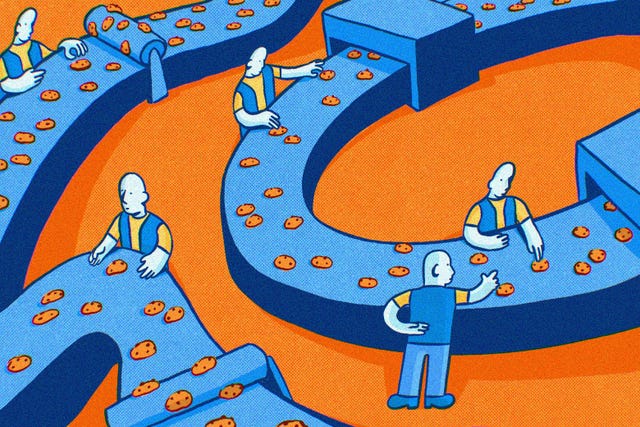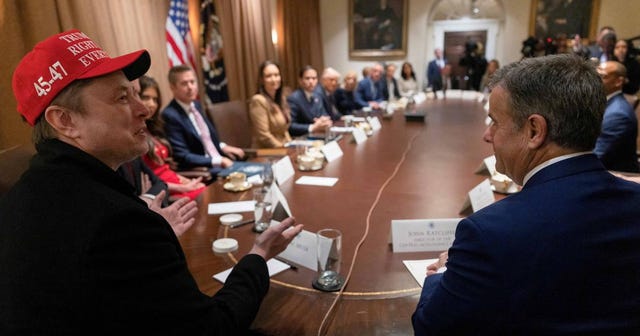Five Things: HSV, Walking, Manufactoring, Technopolar, Altman's Kitchen
It's Sunday. Read this now.
Hello and welcome back to Five Things!
Ok, I admit it. I have been watching too many reels on Insta. Mostly cooking related stuff. On Saturday I prepared pickled red onions and also pickled radish. I also made a huge bowl of hummus. I didn’t think it was so easy to make and now I wonder why I ate so much store-bought hummus in the last years. Home-made hummus just tastes so much better.
Speaking of hummus, I started the week with an interesting event format in the local synagogue in Hamburg, it is called “Speeddating with Judaism”. Hamburg will soon be building a new synagogue at exactly the place where the main synagogue stood before the Nazis destroyed it. So now the jewish community in Hamburg wants to raise awareness about the project, which is a fantastic idea. On Wednesday I went to a ceremony that celebrated 60 years of diplomatic relations between Germany and Israel, which is a wonder in itself that it started just twenty years after the Shoa. Ever since I went to Israel for the first time some 8 years ago, I fell in love with the country and its people. Also the food.
Aside from this, I am watching the Eurovision Song Contest while writing this newsletters and I am fascinated that this kind of show fascinates so many people. It has its moments, but without wind machines it would only be half as much fun.
Have a great Sunday! Oh, and please read these five articles I picked out for you!
Hamburg revel in the completion of their long road back to the Bundesliga
It’s Saturday night and after seven years in the wilderness, Hamburg have been promoted back to the Bundesliga.
On Monday, there will be a reception for both teams (men and women, as they also managed to get up to League One) in city hall. Police expects 120,000 people. The city is energized and everybody is happy about this.
The Creative Power of Walking
When I’m not talking, just walking (which is most of the time), I try to cultivate the most bored state of mind imaginable. A total void of stimulation beyond the immediate environment. My rules: No news, no social media, no podcasts, no music. No “teleporting,” you could say. The phone, the great teleportation device, the great murderer of boredom. And yet, boredom: the great engine of creativity. I now believe with all my heart that it’s only in the crushing silences of boredom—without all that black-mirror dopamine — that you can access your deepest creative wells. And for so many people these days, they’ve never so much as attempted to dip in a ladle, let alone dive down into those uncomfortable waters made accessible through boredom.
Boredom is just not that appreciated anymore. Which is a pity.
On the Line
The promise of a “manufacturing renaissance” was a key part of Trump’s presidential campaign, and it has remained a fantasy dangled over constituents’ heads in the intervening months, jerked up and down with each successive flip-flop on tariffs and trade policy. It’s a testament to this administration’s lack of imagination that they think bringing back the soot-blacked, punishing factory floor is the way to make America great again; it’s like giving yourself severe acne to recapture your youth.
Do Americans actually want those jobs back? Some think they do, but that’s only because most of them don’t know any better. Unfortunately, I do; I worked in a factory once. To this day, it remains one of the worst experiences I’ve ever endured. Believe me: If more people knew what it’s like to work these jobs, they wouldn’t be so eager to return to them.
ah, the good old fifties. I really don’t understand why so many people aspire to get them back. Those mystic times, when everything was supposedly still wonderful. Of course it wasn’t.
The Technopolar Paradox
This was “technopolarity” in action: a technology leader not only driving stock market returns but also controlling aspects of civil society, politics, and international affairs that have been traditionally the exclusive preserve of nation-states. Over the past decade, the rise of such individuals and the firms they control has transformed the global order, which had been defined by states since the Peace of Westphalia enshrined them as the building blocks of geopolitics nearly 400 years ago. For most of this time, the structure of that order could be described as unipolar, bipolar, or multipolar, depending on how power was distributed among countries. The world, however, has since entered a “technopolar moment,” a term I used in Foreign Affairs in 2021 to describe an emerging order in which “a handful of large technology companies rival [states] for geopolitical influence.” Major tech firms have become powerful geopolitical actors, exercising a form of sovereignty over digital space and, increasingly, the physical world that potentially rivals that of states.
Big Tech and Trump is an unholy alliance and when Trump’s regime is over, people will be in favor of breaking up Big Tech. The pendulum always swings back.
Three things we learned about Sam Altman by scoping his kitchen
Does value-for-money get a look in? We know very little about OpenAI’s day-to-day operating costs, but we’ve learned a little more about the day-to-day operating costs of the CEO. Maybe it’s useful to know that Altman uses a knife that’s showy but incohesive and wrong for the job; he wastes huge amounts of money on olive oil that he uses recklessly; and he has an automated coffee machine that claims to save labour while doing the exact opposite because it can’t be trusted. His kitchen is a catalogue of inefficiency, incomprehension, and waste. If that’s any indication of how he runs the company, insolvency cannot be considered too unrealistic a threat.
What a lovely article ripping apart Sam Altman’s cooking, or rather his use of tools and products.
That’s it. Have a great Sunday! If you missed last Sunday’s edition of Five Things, have a look here:
— Nico








